April 14, 2025 | 08:50 GMT +7
April 14, 2025 | 08:50 GMT +7
Hotline: 0913.378.918
April 14, 2025 | 08:50 GMT +7
Hotline: 0913.378.918
The Ministry of Agriculture and Rural Development, in collaboration with the United Nations Development Program (UNDP), the National Plastic Action Partnership (NPAP), and the Vietnam Circular Economy Network, held a workshop entitled "Plastic waste management in agriculture: current situation and solutions" on May 31.
The objective of the workshop is to promote effective solutions for reducing plastic waste in agriculture, with a particular focus on pilot models that have been implemented to address local concerns in three fields: agricultural production, animal husbandry, and fisheries. This is one of the agriculture and rural development sector's activities in response to the 45th anniversary of World Environment Day in 2023, under the theme of "Solutions to Plastic Pollution."
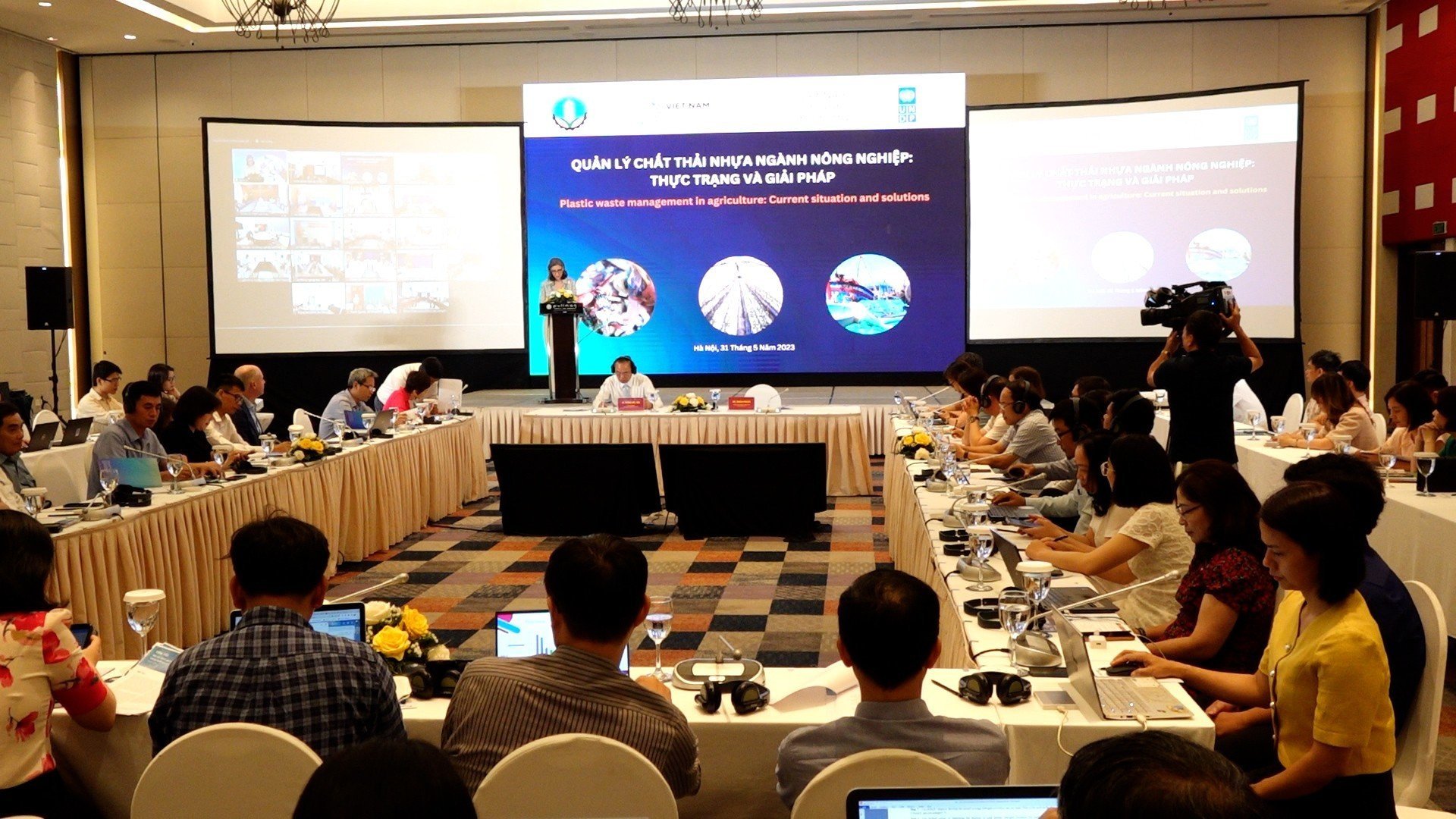
Workshop "Plastic waste management in agriculture: current situation and solutions" aims to promote effective solutions for reducing plastic waste in agriculture.
Agriculture and rural development are the economic pillars of the nation. In 2022, the export turnover of the entire industry surpassed 53.22 billion USD, with significant growth in forestry, animal husbandry, and fisheries. Agricultural production activities are vital to assuring national and regional food security, as well as stabilizing life and social security.
Thus, agricultural production exerts pressure on the environment, including plastic pollution issues. According to the current state of the national environment in 2021, the total amount of solid waste (including plastic waste) generated by agriculture is approximately 661.5 thousand tons per year (including 550 thousand tons of plastic, 77.49 thousand tons of fertilizer packaging, and 33.98 thousand tons of plant protection drug packaging); from animal husbandry is 67.93 million tons (including 77 thousand tons of plastic waste for food packaging); and from seafood is 880 thousand tons.
According to the Vietnam Institute of Fisheries Economics and Planning's report on plastic waste research results, of the types of plastic waste discharged into the environment from fishing boats, domestic plastic waste accounts for more than 87 percent of the total, or 7,6 tons/year. This plastic waste source results from the awareness and practices of ship proprietors.
The workshop introduced a number of practical and efficient solutions that have been implemented in numerous locales to aid in the reduction, collection, classification, reuse, and recycling of agricultural waste.
According to Mr. Mai Thanh Giang, Director of the Sub-Department of Crops Production and Plant Protection of Thai Binh Province, producers now release approximately 1kg of pesticide packaging per hectare of rice cultivation into the environment. The number is multiplied or tripled in the field of vegetables and industrial plants. With an area of approximately 150,000 ha/year for rice cultivation and nearly 75,000 ha/year for vegetables, it is estimated that Thai Binh uses hundreds of tons of pesticide packaging annually.
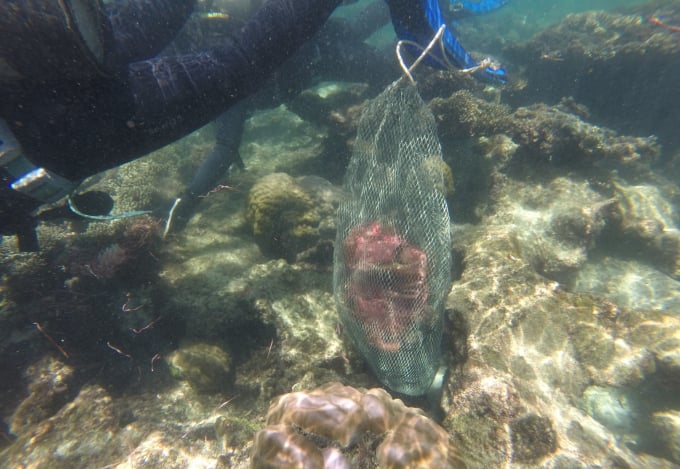
Collecting plastic trash to clean coral in Phu Quoc beach.
To reduce plastic pollution in the environment, the province has implemented and replicated the "Clean field - collect pesticide packaging" model in most communes and municipalities with over 4,500 storage tanks. In the fields, packaging for pesticides is constructed and put into operation in order to classify plastic debris at the source and collect and treat it in accordance with regulations. In addition, the province piloted a model for the management of plastic waste generated in agricultural production on an area of 10.25 ha containing rice, sweet potatoes, and chili plants in the commune of Phu Luong, district of Dong Hung.
Mr. Do Dinh Minh, Director of Quang Ninh Fisheries Sub-Department, stated that the province applied the model of converting styrofoam in aquaculture to floating materials in accordance with the QCDP 08:2020/QN standard, gradually replacing disposable plastic materials that are difficult to collect and reuse with recycled, eco-friendly materials.
Regarding the model of collecting plastic waste on fishing boats, linked to the material recovery facility in Quy Nhon (Binh Dinh), as part of Phase 2 of the project "Replicating the community model of domestic waste management and plastic in 5 cities" sponsored by UNDP Viet Nam and the Norwegian Embassy of Vietnam. The model involves fishermen in a plastic waste collection crew at sea, reduces the amount of floating plastic waste, generates income, and increases the value of recyclable waste.
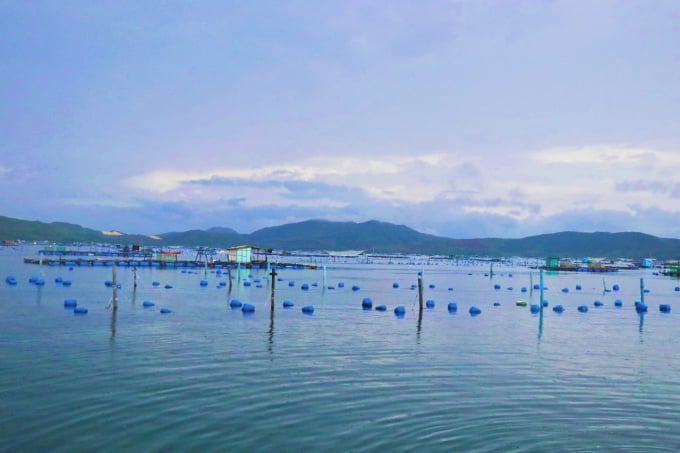
Aquaculture area in Xuan Dai Bay, Song Cau town, Phu Yen province. Photo: PC.
In order to effectively implement the national plan for reducing plastic pollution in the agriculture and fisheries sectors, the UNDP Resident Representative in Vietnam, Ramla Khalidi, suggested accelerating the development of effective solutions.
In addition, it is necessary to develop baseline data on plastic contamination and plastic waste, as well as a national-to-provincial monitoring system, in order to evaluate the reduction of plastic waste in the agricultural sector. In addition, the representative of UNDP Vietnam stated that it is necessary to promote effective collection and recycling models and to supplant single-use plastics with packaging materials. Farmers and agricultural stakeholders are educated about the environmental impact of plastics and the availability of alternatives.
Translated by Dieu Linh
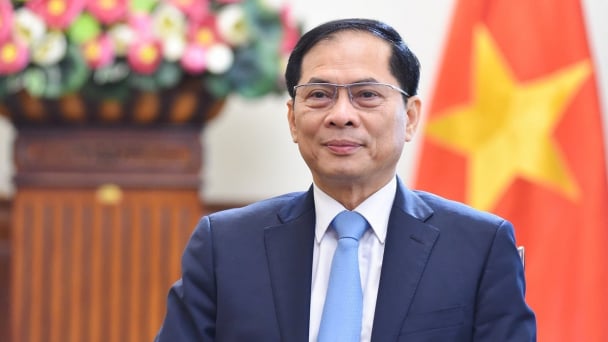
(VAN) According to Deputy Prime Minister Bui Thanh Son, through this P4G Summit, Vietnam aims to convey the message of transforming its growth model towards rapid and sustainable development.
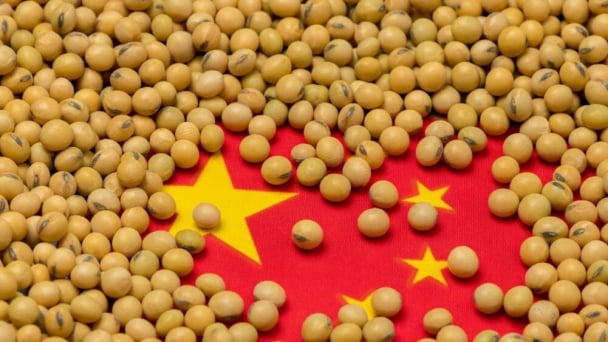
(VAN) Soybean production has been a priority for China to ensure food security, with increased soybean cultivation and yields highlighted in the annual No. 1 Central document.
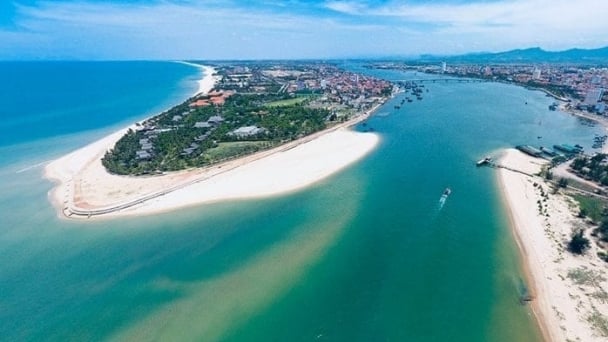
(VAN) Vietnam Sea and Islands Week 2025 is expected to take place in Quang Binh, featuring a series of meaningful activities aimed at protecting the ocean through green technology solutions.
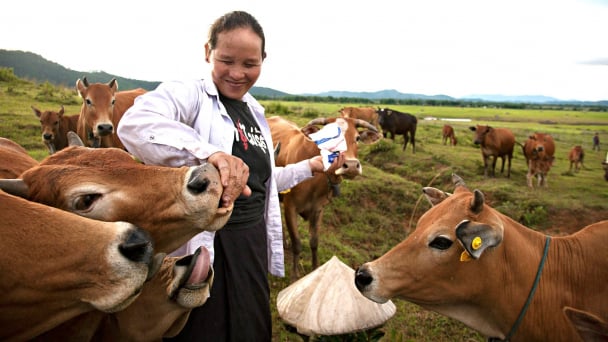
(VAN) The One Health approach is no longer merely an option, as increasingly complex challenges confront health and food systems.
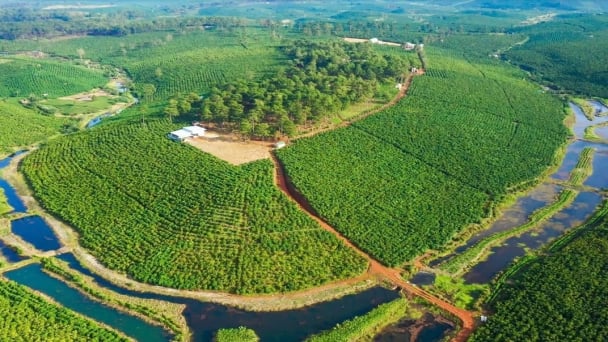
(VAN) The project promoting sustainable coffee production, with a focus on waste management and raising farmers’ awareness, has achieved many positive results after nearly two years of implementation.
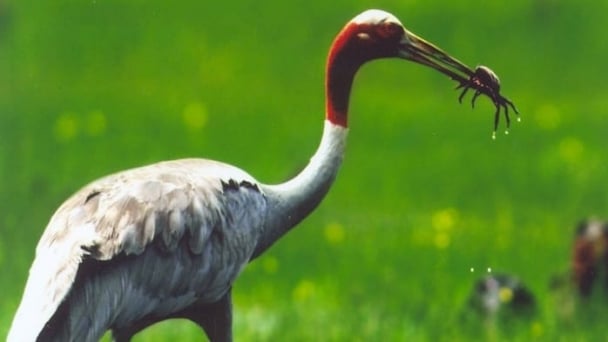
(VAN) Transferring and receiving 6 individuals of the red-crowned crane from Thailand to Vietnam marks a significant milestone in the conservation efforts for this species.
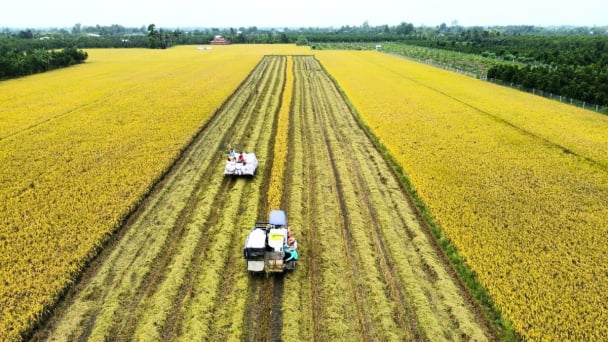
(VAN) After more than a year of implementation, the One Million Hectares of High-Quality, Low-Emission Rice project has completed the first steps, but it needs breakthrough solutions to deepen impacts in the upcoming phase.